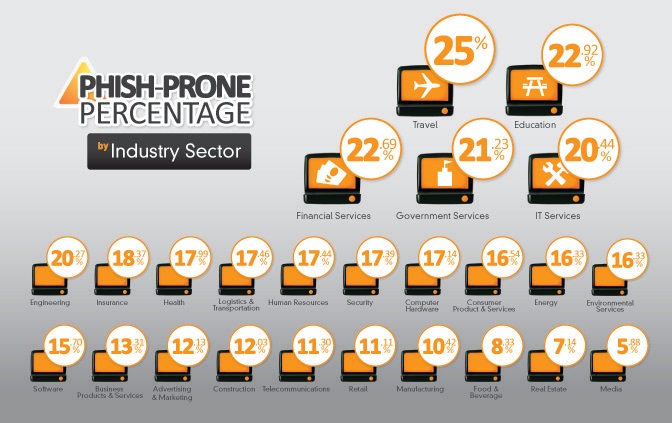In a recent research study, by KnowBe4, several thousand companies were targeted to see if they were safe from cyber criminals. Small, fast-growing businesses from the Inc. 5000 list were chosen, and publicly available information was gathered. Domain names and email addresses, easily accessed over the Internet, were obtained and some 28,000+ emails were sent. Each email was a simulated phishing attack that did not have a malicious payload. The results were shocking, within a couple hours half of all the emails had been opened. Of the emails opened, employees from about 500 companies clicked the phishing attack link, exposing private company information. Before the study's IP address was shut down, they had been able to gather data for about 21 hours. This can have serious consequences. It is estimated that small-businesses lose more than $40 million a year to cyber crime. A growing problem, cyber criminals target smaller businesses and banks in particular due to low investment in IT. The industries found most susceptible to attack were; travel, education, finance, government services, and in fact IT services.
 |
| (https://s3.amazonaws.com/knowbe4-images/KnowBe4+WP+Images/Fail500IndustryGraph.jpg) |
Articles of Interest and Sources
http://jobs.aol.com/articles/2011/05/24/you-could-be-inviting-scammers-into-your-workplace/ (news article)
http://www.knowbe4.com/fail500/ (research study)
http://dictionary.reference.com/browse/phishing
Phishing is really tricky like you said it is usually an email that makes itself looks like it is from a legitimate organization or person, but is not and contains a link or file with malware. I also believe that there should be a way for someones inbox to weed out emails such as these through means of scanning the email for malware and virus's. (jcapatin@uncc.edu)
ReplyDeleteYour right, it can be hard to seperate junk and dangerous emails from the rest. Many of these attacks involve official appearing emails. IT works hard to report spam, but it still requires an educated employee to be able to identify any suspicious emails that may slip through.
DeleteThis blog reminds me of UNCC's email server. Some emails get blocked and send an automated message while others still get through. I've gotten emails about making quick money and asking for information that I've ignored and am glad I did.
ReplyDeleteExactly. The system is fairly good at reporting spam, but it is not perfect. Emails just like that can be very dangerous. They target students, and if you are not informed, could easily have personal information stolen, becoming a victim to a cyber crime. Even on the school's email server, students need to be warry of any shady emails.
Delete